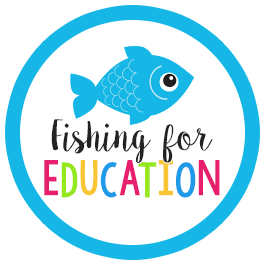Coding is something that is rapidly joining the Australian Curriculum and has already been encouraged to use in the classroom. We had a PD at our school about it recently and I had to present some ideas to get teachers and students started. It's something new in education, but has been around in the real world for a lot longer. I'll outline some base points and provide examples of easy to use apps, websites and activities!
What is Coding?
Basically it is the language that the computer speaks! It is a list of commands and tasks that you tell a computer to complete. (A good analogy is pushing the buttons on a microwave to cook/heat your food a certain way, or how you tell a character in a video game to do certain things.)Vocabulary
A friend that went to a Coding PD informed us that the big push is to become familiar with the vocabulary that is commonly used when coding. Code.org has a great Glossary that is simplified and with meanings we can understand.Lesson Ideas without Technology
— Cristina Popescu (@Angelinointexas) February 9, 2015
Before you dive into using apps and websites and get coding, try using lesson activities without technology first. This provides a hands on experience and a chance for everyone to think outside of the box.At Code.org they have Unplugged Lessons designed specifically for this! Great for all ages, very well laid out for easy reading, extra resources and, best of all, planned out for you!
Code.org
This is, personally, a huge favourite of mine! There are TONS and TONS of resources, activities and games that the students actually really enjoy!You don't have to sign up to use the website, but I highly recommend it. Plus, why wouldn't you if it's FREE?
This is the teacher dashboard/home page. I like that you can track to see how each individual student is doing, but I haven't pushed that much lately. There are tons of lesson plans and resources, courses to do with the class, inspiring videos and more! (The Professional Development is for United States, but it's becoming more worldwide everyday. Hopefully we get some more virtual PDs or they come to Australia!)
Other Websites
CodeAcademy.com - This website focuses on a lot of programs that include HTML, CSS and more. This is more for your upper grades, but my Year 4s are very enthusiastic about creating their own website one day! It's free for some course, but can require an upgrade at one point. (I might just do this for my own benefit.)CodeAvengers.com - This has great reviews, but it costs money after a free trial. Similar to Code Academy and more advance for upper years.
KidBlog.org - GREAT site for those who want their students to have and run their own blog! It's kid-friendly when building. It's more for sharing your writing and such in a blog format, but I've seen them used to help promote writing in the classroom with positive results!
Coding Apps
CodeQuest is an app we've used in our class to help go over HTML and CSS. It talks about each part, how they're written and what each code is used for. (Kids can make their own mock up website when they reach the final level.)
LightBot is FABULOUS! This is the most popular and easy to use in my class. We have wonderful teamwork results and the kids are really improving their problem solving skills. Great way to introduce the programming vocabulary.
Other Coding Resources
Here are several other resources for you to check out!Robots
MeetEdison.com - Our school is getting a couple of these robots. You create a program in the Edware app and download it to your Edison robot. Then what your robot go! GREAT hands on resource. It does cost money, but its about $60AUD (from what our coordinator told me) and I'd like to think that's affordable if you want to get one for your class. (FREE international shipping!)
Books
DK Computer Coding Games is a great reference book for when I want to venture out into making games on Hopscotch app. I got Hello Ruby as an introduction to each lesson.













































